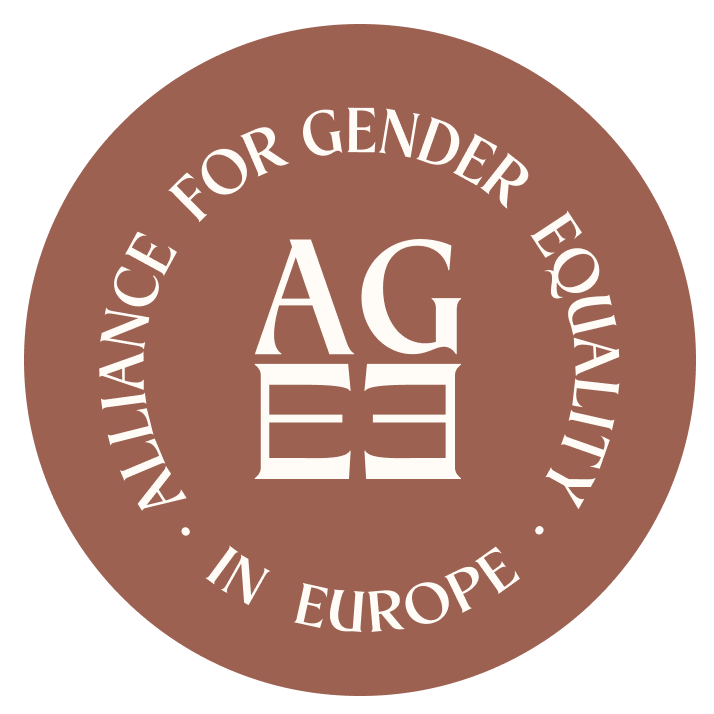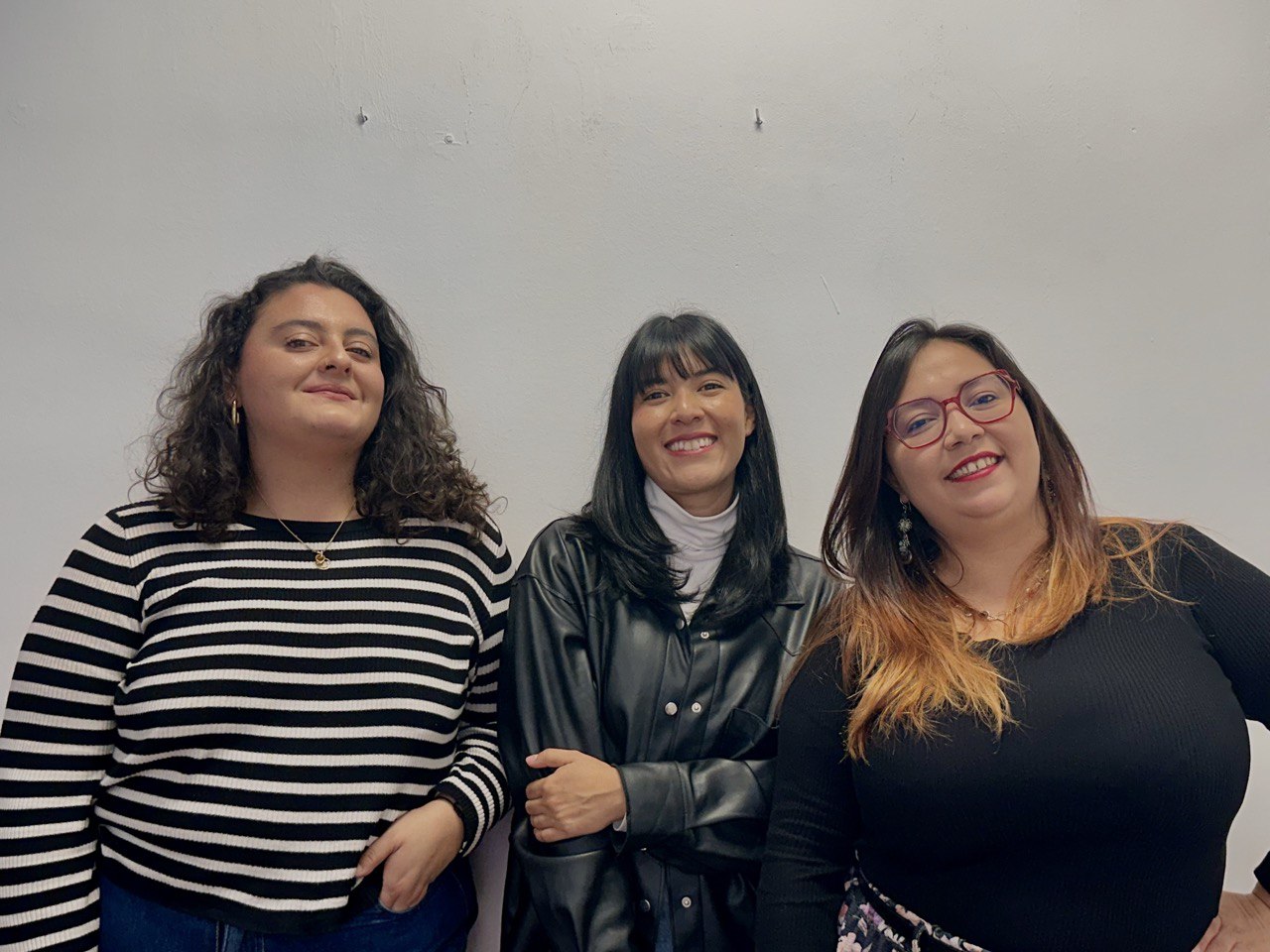SOS Racismo Madrid is on a mission to challenge injustice and build a more equitable and fair society for Black, Indigenous, and people of colour in Spain. Their dedicated team investigates, analyses and makes visible structural racism that shapes individual and collective experiences.
We recently had the opportunity to speak with their team to hear more about their impactful work, which we are proud to support through our 2023 economic opportunities fund.
Your work tackles sexism and racism that affect young women from migrant and racialized backgrounds. What are some of the key challenges they face in accessing decent employment, and how are you overcoming these barriers?
As racialized or migrant women, we are often the least favored candidates for recruiters. On top of that, the Spanish Migration Law creates additional inequalities, limiting our opportunities and pushing many of into lower skilled, lower-paid jobs.
In Spain, only 23% of children from migrant families achieve a university or postgraduate degree. This doesn’t reflect a lack of ability but is instead due to factors like low expectations from teachers and the absence of role models who can inspire these young people to dream beyond their immediate realities.
When discussing migration and access to employment, it’s also crucial to acknowledge the situation of women living in irregular administrative conditions. Their legal status effectively shuts them out of the formal labor market, forcing them into precarious, underpaid, and often exploitative jobs.
The Spanish Migration Law pushes thousands of women and girls into administrative irregularity every year. Because of economic necessity, many are hired informally as caregivers, cleaners, and caterers, limiting their chances of accessing higher-skilled sectors. This creates a vicious cycle of marginalization.
Another barrier is the recognition of university degrees from abroad. Although this process is supposed to take no more than six months, in practice, it often takes two years, and in some cases, up to eight years. Unable to work in sectors aligned with their qualifications, many migrant women are often forced into jobs for which they are vastly overqualified.
For racialized women born in Spain or naturalized Spanish citizens, the lack of official data is concerning. Spain does not collect statistics on racial and ethnic diversity, which obscures the structural inequalities we face. However, research, and, more importantly, our lived experiences reveal the barriers we confront. Prejudices, mistrust, and doubts about our skills and knowledge persist, limiting our job opportunities, widening the employment gap, worsening our mental health, and making our lives more precarious.
Additionally, racialized and/or migrant women have very little protection against racist practices and violence in the workplace. Although some legal frameworks address these issues, few companies have adopted anti-racist protocols or policies to effectively tackle workplace racism.
In response to these challenges, we created the “Rompiendo Techos, Co(i)nspirando Futuros” school for women. Through this initiative, we not only equip participants with tools to better understand labor rights and navigate employment in an unfamiliar context but provide emotional support to heal the wounds these processes inflict on young women. We accompany them through difficult personal situations and work closely with them to identify professional opportunities, improving their chances of integration and success in the Spanish labor market.
You are creating a network of companies committed to equality. Could you share more about how this network operates and what impact you hope it will have on the employment opportunities for young women experiencing multiple injustices?
While our “Rompiendo Techos” school equips young and racialized women with tools to navigate the workforce, we believe
the responsibility of reducing barriers also lies with companies. They must initiate a process of learning, self-reflection, and accountability to create workplaces that are more fair, more humane and equitable.
Our network of companies and organizations committed to ethnic and gender diversity was established to provide safe spaces for our students and encourage internal dialogue and transformation within these companies. The goal is to improve their policies on equal treatment and anti-racism, as well as work cultures, and to highlight the value of recognizing ethnic diversity and generational differences as powerful drivers of cultural transformation and enrichment, as diverse work environments tend to be more creative, innovative, and resilient.
Our network currently includes 15 companies and organizations, each contributing in different ways. Some provide services or training spaces for our school, while others offer internships that allow the young women to gain practical experience in fields related to their education or professional background. This significantly enhances their of securing skilled jobs, regardless of their administrative status.
In your experience, how can mentors help women flourish, especially in industries that are not known for their diversity?
Mentors play a crucial in the development of the young women, as they serve as guides and relatable role models. By encouraging young women to lead in training sessions or entrepreneurial processes, we enable them to further develop essential skills like leadership, self-confidence, self-esteem, public speaking, planning abilities, and creativity.
Role models are especially important for migrant and racialized women, particularly younger ones. That’s why mentors are such a fundamental part of this project. They contribute not only to the personal growth of the young women but also to the collective growth of the community.
The Spanish professional landscape is not designed to accommodate these women. However, seeing themselves reflected in other racialized women who have had to overcome numerous obstacles to achieve success provides a powerful source of motivation for the younger women in our project.
What advice would you give to other organisations seeking to meaningfully involve the communities they support in the design and development of their initiatives?
One of the key lessons we’ve learned at SOS Racismo Madrid is that, even when we feel exhausted and it seems that there are no alternatives or options available to us, we need to keep going. These spaces for growth and development are essential for our.
It is important to develop strategies that resonate with the interests of the people you are helping to integrate. For instance, in our women’s project, we create guides using accessible language, and in our merchandising, we include lyrics from contemporary artists who represent diversity.
Additionally, it’s crucial to engage partners and activists and ensure that there is a clear connection between the political work being done and the projects being implemented. This ensures there is coherence and a mutual understanding of how these elements fit together.
Our advice to other organizations is simple: don’t give up. The work we do leaves a lasting impact on our communities and is incredibly important. Together, we are powerful.
Main photo: SOS Racismo Madrid

